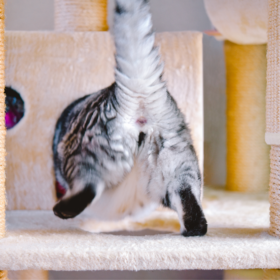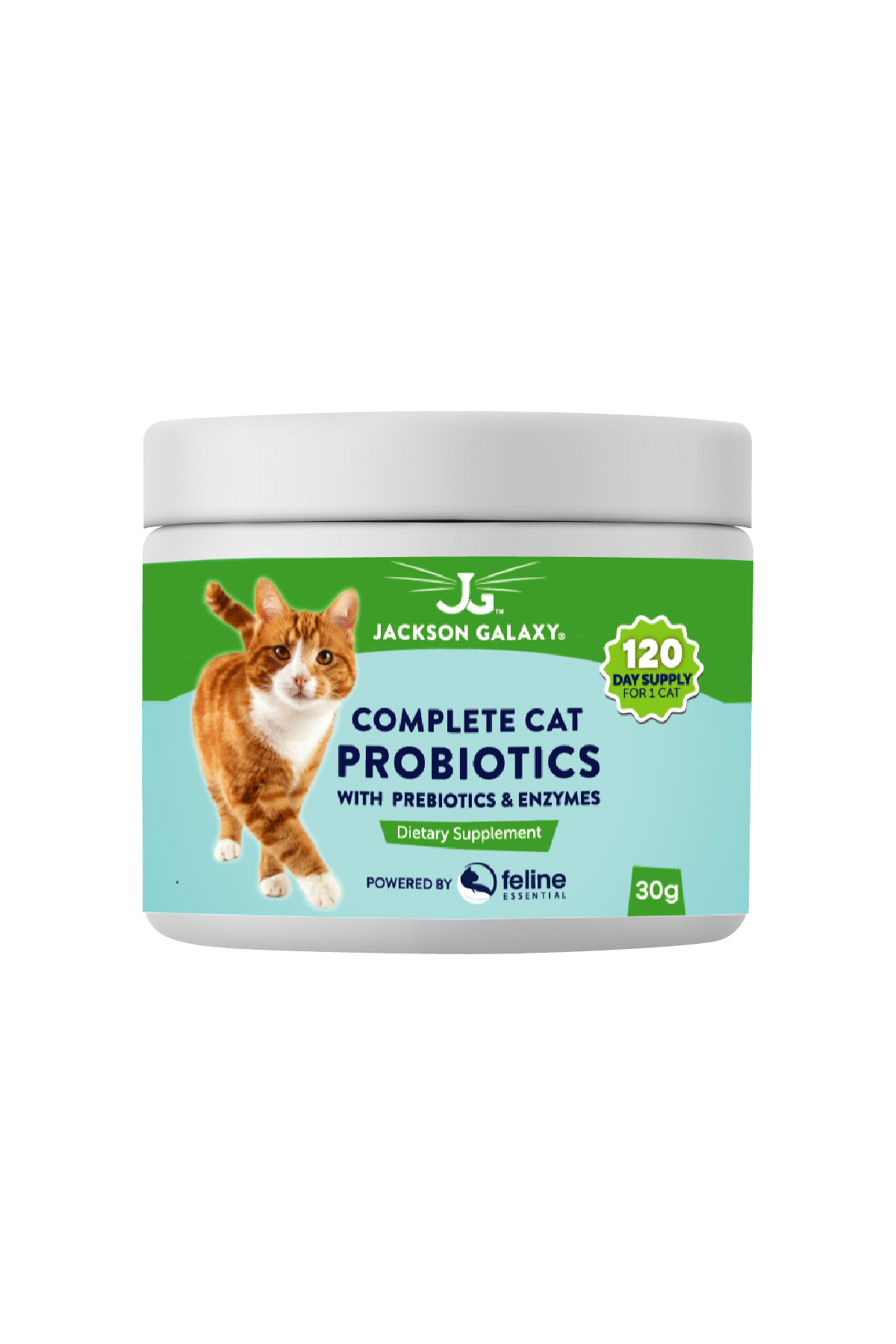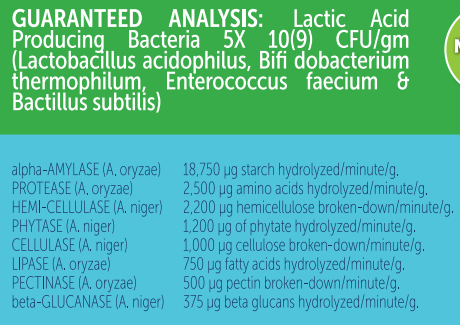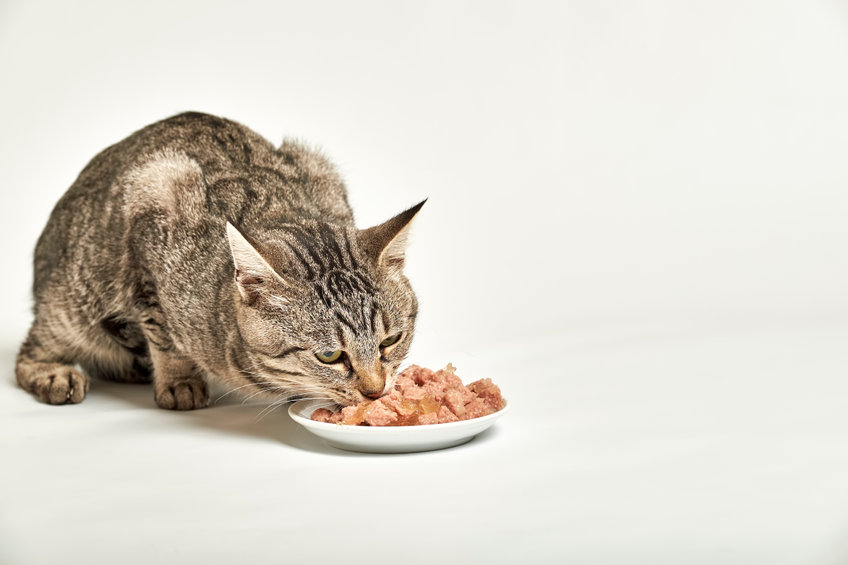
Anal Gland Issues in Cats
Symptoms, Causes & Natural Remedies
Cats, just like dogs, can sometimes have issues with their anal glands. Understanding these issues, their causes, symptoms, and potential natural remedies is essential for cat parents. In this comprehensive guide, we will delve into the various aspects of anal gland problems in cats and how to help your kitty when they experience this.
What Are Anal Glands?
Anal glands, also known as anal sacs, are small sacs located on either side of a cat’s anus. They contain a foul-smelling, oily substance that is normally expelled when a cat defecates. This substance is a form of communication, as cats use their scent to mark their territory and communicate with other cats.
Why Are They Important?
Anal glands play a crucial role in a cat’s health and behavior. They help cats establish territory and can convey important information to other animals. However, when these glands become inflammed, they can lead to various health issues.
Types of Anal Gland Issues
1. Impaction
Anal gland impaction occurs when the glands become clogged, preventing the normal release of their feces. This can result in discomfort and other health problems.
2. Infection
Infection of the anal glands is often a consequence of impaction. Bacteria can enter the blocked glands, leading to inflammation and infection.
3. Abscess
If an anal gland infection is left untreated, it can progress to the formation of an abscess, a painful collection of pus. Abscesses are serious and require immediate veterinary attention.
4. Overactive Anal Glands
Releasing an unpleasant odor and discomfort to your kitty, overactive anal glands should be promptly and properly treated.
Symptoms of Anal Gland Issues
- Scooting: Dragging their rear end along the ground (scooting) is a common sign of anal gland problems.
- Excessive Licking: Cats may lick their anal area excessively, trying to soothe the discomfort.
- Swelling: Cats with anal gland issues may exhibit swelling or redness around the anal area.
- Discharge: Bloody or oozy discharge with a foul odor may occur.
- Excessive Tail Chasing: Cats may try to relieve discomfort by chasing their tails or gnawing at their rear end.
- Pain or Irritation: Cats with anal gland problems may exhibit signs of discomfort, such as vocalizing or excessive grooming in the anal area.
- Aggression or Lethargy: Cats might display changes in behavior, becoming unusually aggressive or lethargic.
Causes of Anal Gland Problems
1. Diet
A diet low in fiber can contribute to anal gland issues, as it can lead to firmer stool that doesn’t naturally express the glands during defecation.
2. Breed Predisposition
Certain cat breeds, like Siamese and Burmese cats, may be more prone to anal gland problems.
3. Obesity
Obesity can increase the risk of anal gland issues due to pressure on the glands and difficulty reaching the glands during grooming.
4. Bacterial infection
Bacteria can infect your cat’s anal sacs due to the close location of the glands to the anus itself.
5. Underlying Health Conditions
Conditions like allergies, inflammatory bowel disease, or gastrointestinal problems can affect stool consistency and contribute to anal gland problems.
Natural Remedies for Anal Gland Issues
- Dietary Adjustments: Switching to a high-fiber diet can help regulate stool consistency and promote natural gland expression.
- Fiber Supplements: Adding psyllium husk or canned pumpkin to your cat’s food can help increase fiber intake, creating a firmer stool.
- Manual Gland Expression: Cats typically will express their own anal glands while grooming. Your veterinarian or a trained groomer can teach you how to manually express your cat’s anal glands if necessary. The goal is to get our cats anal sacs to work properly, however, so we don’t want to manually express their anal glands too often.
- Herbal Remedies: Herbs like calendula and chamomile can have anti-inflammatory and soothing effects on the anal area when used as a topical wash.
- Probiotics: Probiotic supplements can promote overall digestive health, potentially reducing the risk of anal gland issues.
Prevention and Maintenance
1. Proper Diet
Maintain a balanced, fresh food diet that includes adequate fiber to regulate stool consistency.
2. Regular Vet Check-ups
Schedule routine veterinary check-ups to monitor your cat’s anal gland health.
3. Weight Management
Help your cat maintain a healthy weight through proper diet and exercise to reduce the risk of obesity-related anal gland issues.
When to Seek Veterinary Care
- Severity of Symptoms: If your cat displays severe symptoms, such as abscess formation or extreme pain, consult your veterinarian immediately.
- Persistent Issues: Chronic or recurrent anal gland problems should be addressed by a vet to determine the underlying cause.
- Safety Concerns: If you’re unsure about how to express your cat’s glands or if your cat becomes aggressive during the process, it’s safest to seek professional veterinary care.
Anal gland issues in cats are common but can be managed with proper care, including dietary adjustments, natural remedies, and regular veterinary attention. By staying informed and proactive, you can ensure your feline friend’s comfort and well-being.
Recommended Product for Anal Gland Issues
Complete Cat Probiotics
Say goodbye to an unhealthy gut and hello to a happier & healthier kitty! This microencapsulated blend of pre and probiotics along with digestive enzymes helps support digestive and immunity health in cats of all ages. Because the majority of our cats’ immune system is in their gut, supplementing with these live and viable, naturally-occurring microorganisms will ensure better overall health for your feline friend.
*120+ Day Supply*
Purrfect for:
- Digestive Health
- Immunity Health
- Gut Health
- IBD Support
- Inflammatory Support
- Allergy Support
- Liver Support
- Helping growing kittens
- And Much More!
Original price was: $49.95.$44.96Current price is: $44.96.
In stock (can be backordered)
You Might Also Be Interested In ...
Feeding Fresh Food To Your Cat
If you have a kibble addicted kitty or one that's been fed the same thing for awhile, feeding...
How To Help Obesity In Cats
Obesity in cats is becoming an epidemic across the world, with the latest statistic showing 59.5%...
Preventative for Tapeworms In Cats
Our Cat Tip of the Day today has to do with worming your cat. Cats that are susceptible to fleas...




